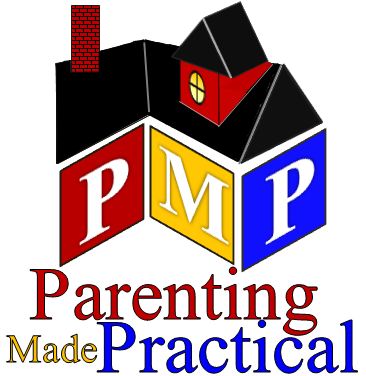Joey and Carla Link
October 15, 2025

You ask one of your kids to do a chore he knows he is supposed to do. He ignores you. Forget trying to be polite. This time you tell him to do it in a firm voice. He tells you he will do it in an annoyed tone. A while later you check and find out he still hasn’t done it. Forget asking, forget telling, this time you yell at him until he gets up and does it.
When parents are telling us why they are frustrated with this particular child, when they get to the yelling part they say, “He finally obeyed.” They are surprised when we tell them that he did not obey. As we have been talking about in other blogs, this is forced compliance. If he obeyed, he would have done the chore first thing instead of waiting for his mom to get on him about it.
Let’s talk about ways you can be positive when working with your kids/teens:
1. Ask questions instead of lecturing. “I can see you are having a problem getting your chores done on time. What can I do to help you?” sounds better than “You never get your stuff done on time! I don’t know what your problem is. Do you stand there and daydream instead of working?!”
2. Elevate the good, and teach your kids to as well. Instead of telling them what not to do (“Stop hitting your sister!”), ask them to give you something they can and should do (Mom: “What can you do to be nice to your sister?” Child: “I will share my toy with her that she wants to play with.”
3. When giving a consequence to your kids, take away what your child misused. Ask your child,“What freedom did you misuse when you should have been setting the table for dinner?” Let’s say your child tells you she wanted to finish reading the chapter in her book so she misused the freedom to read on her own time. Mom agreed and took away the privilege of free-time reading.
She asked her daughter (13 yrs.) how long she thought she should lose the freedom of reading this book. Mom was surprised, knowing how badly her daughter wanted to finish this particular book when she responded she thought she should lose that freedom for a week. By getting your child (9 yrs. and up) to be involved in this process, they won’t say you are unfair and they will have a calm attitude about losing the freedom of something important to them.
4. Work on one behavior at a time with each child. It will help you, your spouse and your kids stay focused on what you are working on. If you work on too many things at a time, you won’t be consistent and your kids won’t always know what is going to set you off.
We hope you feel encouraged to work with your kids using positivity rather than primarily correcting them with consequences. When you get into the habit of doing what we mentioned above you will find it doesn’t consume a lot of time to be consistent doing them.
“Trust in the LORD with all your heart, and do not lean on your own understanding.
In all your ways acknowledge Him, and He will make straight your paths.”
Proverbs 3:5-6
Have you listened to these Mom’s Notes presentations?
All of a Sudden – When describing a parenting scenario to us, parents frequently get to a point in their story when they say, “And all of a sudden…” We know from experience that rarely does a problem with children develop “suddenly”. “All of a sudden” reveals gaps in the training of children that are already there. Find out how to rid your household of “sudden” discipline problems in this Mom’s Notes presentation.
Understanding Freedoms (Part 1 and Part 2) This 2-part session explores the meaning of the statement “With responsibility comes freedom.” In these 2 presentations you will learn what to do when your children are not taking ownership of their behaviors, attitudes and actions. Part 2 of this presentation looks at how to effectively train your children in the Repentance, Forgiveness, and Restoration process.
Part 1
Part 2
Use code Oct19 at checkout by 10/19/25 for $1 off each mp3 & PDF
Parenting Made Practical Podcasts
#3 Does Your Child Have the Freedom to Do That?
“Do you have the freedom to do that?” is a powerful phrase with a powerful punch, throwing the ball of responsibility back in your kid’s irresponsible court. In this podcast learn how to teach your kids to be responsible for their own stuff.
Click the title or search Parenting Made Practical in your favorite
podcast app to listen!
